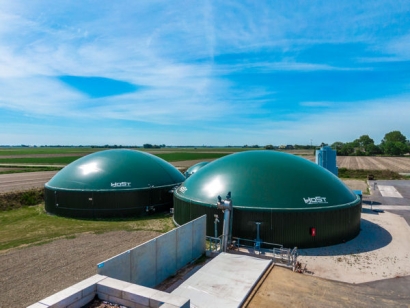
HoSt is one of the largest suppliers of bioenergy systems globally with more than 200 installations during its 30 years of experience.
BoxLNG is an emerging firm in India focused on executing scalable Renewable Natural Gas /Compressed Biogas projects, and through its subsidiary ZiPGAS Pvt Ltd holds 14 Letter of Intents (LOIs) for the supply of approximately 150 tons/day of CBG under the Sustainable Alternative Towards Affordable Transportation scheme by the Government of India. HoSt will support ZiPGAS along with its subsidiary Bright Biomethane with the focus on biogas purification.
“We at HoSt are excited about the partnership with BoxLNG. This is a great bioenergy platform for us to showcase our technology expertise in one of the fastest growing clean energy fields, and for us to establish a strong foothold in (South) Asia,” says Herman Klein Teeselink, CEO of HoSt.
Brij Mohan Bansal, President of BoxLNG, said “This is an opportune time for India to showcase its leadership position towards cleaner and greener future, and in this regard, following on the aspirations of our Prime Minister, we at BoxLNG are fully committed towards energy transition by utilizing local resources."
The collaboration between BoxLNG and HoSt is a key milestone in India’s CBG story, where the partners bring strong local knowledge and project development experience, combined with international capital and technology expertise. BoxLNG will start implementing three projects on ground in the states of Uttar Pradesh and Maharashtra starting February 2021. Followed by the remaining 11 projects over the course of 2021.
“We thank HoSt for their intention to work together with BoxLNG towards the realization of the first projects in India. We are working tirelessly towards our first target of achieving 200 CBG plants over the next 10 years, and for this to happen we need strong partners. HoSt brings to the tableworld class proven technology, investment and support allowing us to scale up in a short span of time,” says Sachin Nagdive, CEO of BoxLNG.
BoxLNG intends to use the various biomass/waste sources, including agricultural residue, municipal solid waste, sugarcane press mud, distillery spent wash, cattle dung, sewage treatment plant and food waste to generate the CBG.

